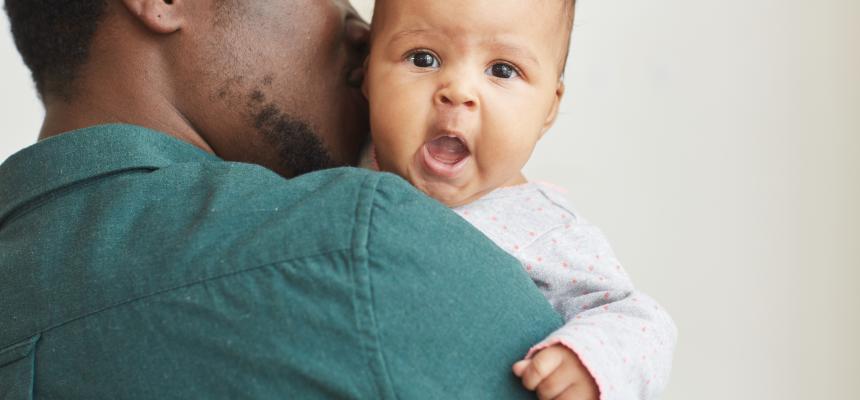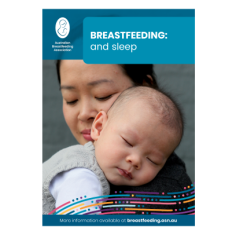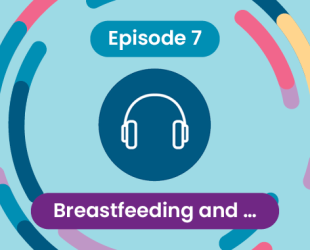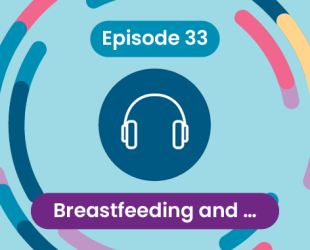Baby sleep explained—why waking is normal and how rhythms develop over time.

Every baby’s sleep is unique and patterns change as your baby grows. If your baby isn’t sleeping as you expected, you’re not alone. Frustration, anger and guilt are common feelings for many parents when it comes to supporting their baby's sleep. But frequent waking is normal and helps babies stay nourished, safe, and connected to you.
Baby sleep patterns
Baby sleep patterns are different to adult sleep patterns and change as a baby grows from newborn to older baby to toddler. The pattern of sleeping and waking varies widely between babies. Until about 2 to 3 years of age, sleep patterns can appear to ‘go backwards’ at times. Some people call this a ‘regression’. It’s normal and not caused by anything you’re doing.
There are two types of baby sleep – active and quiet sleep. Babies spend about 60% of their sleep in active sleep.1 This helps their brain grow and lets them wake often to make sure they’re fed.
Breastfed babies wake more easily from active sleep than formula-fed babies. This is considered to be one of the reasons why breastfed babies have a lower risk of Sudden Infant Death Syndrome (SIDS).2
Most babies get the sleep they need but it’s spread over the whole day and night, not just at night. As babies grow, they sleep more at night and less during the day, with more time spent in quiet sleep.
How much sleep does my baby need?
There is a lot of variation in how much sleep babies get and their sleep/wake patterns. A large Australian study3 found:
- Babies under 3 months slept between 11 and 18 hours per day in total with sleeping and waking times spread over the 24 hours.
- Babies from 3 to 8 months slept 11 to 16 hours per day.
- As babies get older, daytime sleep decreases and night-time sleep increases.


Why do babies wake?
There are many reasons why your baby may wake during the night. Sometimes you might be able to work it out, many times you won’t. Common reasons include:
In the early days, babies have no idea about day and night.
Young babies have tiny tummies which need refilling frequently. Short night feeds can settle your baby (and you) back to sleep quickly.
Babies are easily disturbed. Too hot, too cold, some prefer to be wrapped, others prefer to have arms and legs free. Some babies wake with the slightest noise, others wake when it’s too quiet.
Some babies and toddlers who have been sleeping well for some time, start to wake again. They might be going through a phase- perhaps they’ve learned to roll over and that wakes them. Rather than try to return them to their previous sleeping pattern, it can be less stressful to wait for the stage to settle down.
A baby that is a little unwell may be wakeful. Check with your health professional if you’re concerned.
It’s not always possible to find a clear reason for your baby’s waking. But it’s reassuring to know that every baby is an individual and your baby's sleep patterns will change as your baby matures. Early sleep patterns don’t last forever and what feels challenging now will shift over time.
When will my baby sleep through?
It’s natural to wonder when your baby will start sleeping through the night. But for babies, ‘sleeping through’ doesn’t mean eight uninterrupted hours like adults—it simply means longer stretches of sleep as they grow.
Babies aren’t born knowing the difference between day and night. This pattern develops gradually as their circadian rhythm matures:
- In the early months: Newborns wake often because they need frequent feeds and comfort. Their sleep is spread across day and night.
- Around 3–4 months: Many babies start showing signs of a day-night rhythm, but this varies widely.
- Later in the first year: Sleep often becomes more consolidated at night, but waking is still normal—even beyond 12 months.
Frequent night waking supports feeding and bonding and is part of healthy development.
There is no evidence that early solids helps babies sleep longer. It’s more likely that the introduction of solids at around 6 months coincides with a natural development of a longer stretch of sleep in some babies.
There’s also no evidence that breastfed babies and formula-fed babies differ in when they start sleeping through the night.
Supporting your baby at night
Your baby’s need for closeness and physical contact is real and important for their wellbeing. Babies know if their parents are close by and if you aren’t, they have no way of knowing where you are. They feel most secure when they can see, hear, or be held by a parent, so waking at night to seek reassurance is normal.
Some babies are noisy sleepers. You may hear them stirring or making sounds, but if you wait a little, they may settle themselves back to sleep without needing you. For many families, breastfeeding is a natural and effective way to settle a baby at night, providing both nourishment and comfort.
Feeding to sleep won’t create ‘bad habits’; as your baby grows, they’ll learn to settle in other ways or with other people. If feeding to sleep doesn’t suit your family, there are other gentle approaches you can try.
© Australian Breastfeeding Association November 2025
- Davis, K. F., Parker, K. P., & Montgomery, G. L. (2004). Sleep in infants and young children: Part one: Normal sleep. Journal of Pediatric Health Care, 18(2), 65–71. https://doi.org/10.1016/s0891-5245(03)00149-4
- Hauck, F. R., Thompson, J. M., Tanabe, K. O., Moon, R. Y., & Vennemann, M. M. (2011). Breastfeeding and reduced risk of sudden infant death syndrome: A meta-analysis. Pediatrics, 128(1), 103–110. https://doi.org/10.1542/peds.2010-3000
- Teng, A., Bartle, A., Sadeh, A., & Mindell, J. (2012). Infant and toddler sleep in Australia and New Zealand. Journal of Paediatrics and Child Health, 48(3), 268–273. https://doi.org/10.1111/j.1440-1754.2011.02251.x
Parenting book
Helen L. Ball: How Babies Sleep: A Factful Guide to the First 365 Days and Nights. Penguin, 2025. https://isbnsearch.org/isbn/9780306834639
Find out more about wakeful babies
Online interactive session free for members
Newborn Virtual Village - Sleep and breastfeeding patterns in the early weeks







